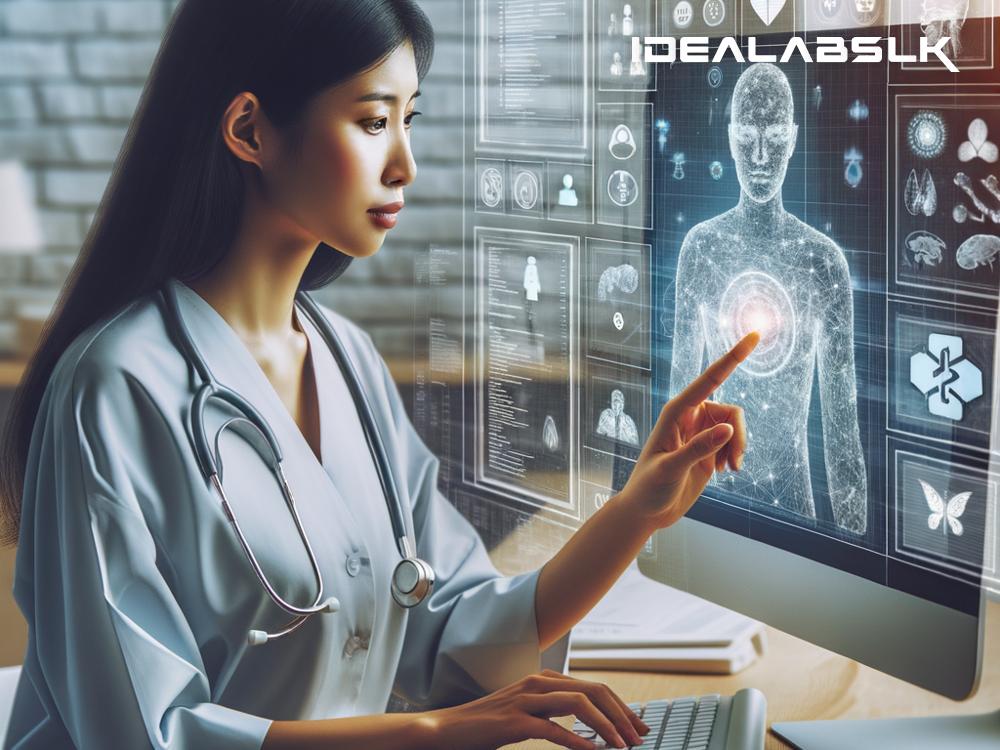How to Use AI Safely in Healthcare: Mitigating the Risks of Automation in Medical Decisions
In the world today, artificial intelligence (AI) is like a new friend in the healthcare sector. This friend is smart, fast, and often comes up with surprising solutions. AI helps doctors and nurses by reading through huge piles of data in seconds, helping in diagnosing diseases earlier, and even suggesting treatments. Imagine having a super-smart helper in your healthcare team – that's AI for you! However, as with all friendships, there are ups and downs. The downside? AI can sometimes make mistakes or follow the wrong path if not watched carefully. So, how do we enjoy the benefits of AI in healthcare safely? Here are some steps to follow:
1. Know Your AI Buddy
First things first, understand how your AI works. What is its brain made of? In simpler terms, know the kind of data it was trained on, its strengths, and its limitations. If your AI was trained on data from hospital A, it might not perform as well in hospital B without some adjustments. It's like moving to a new country and needing some time to adjust to the new environment.
2. Constant Check-ups
Just like humans, AI needs regular check-ups to ensure it’s functioning correctly. This means constantly reviewing the decisions it makes. If it suggests a medication for a patient, a human doctor should review this decision to ensure it's the right call. It’s like having a co-pilot; even though the autopilot is flying the plane, the human pilot is always there to take over if needed.
3. Diverse Training
To mitigate risks, AI systems should be trained on diverse data sets that represent all kinds of patients fairly. If an AI is only trained on data from middle-aged men, it might not be very good at diagnosing diseases in women or children. It's important that the AI doesn’t become a one-trick pony but rather a well-rounded tool that understands the full spectrum of human health.
4. Be Transparent
Transparency is key. Both healthcare professionals and patients should know when and how AI is being used. If a diagnosis was made with the help of AI, this information should be shared. It's similar to knowing the ingredients in your food. If you’re allergic to peanuts, you’d want to know if they’re in your meal. Similarly, knowing AI was involved in healthcare decisions can help patients and doctors understand the basis of those decisions.
5. Educate and Train
Healthcare professionals should be trained not only on how to use AI but also on its limitations. It’s a bit like learning to drive. Knowing how to operate the car is crucial, but understanding its capabilities and when it might need a bit of help (like in icy conditions) is equally important.
6. Ethical Considerations
We must always keep ethics in the front seat. Just because AI suggests something is the most efficient solution, doesn't mean it's the right thing to do. AI might suggest a treatment that’s less costly but also less effective. Here, ethics come into play, and human judgment is crucial.
7. Keep Humans in the Loop
Last but not least, AI should not replace human healthcare professionals but work alongside them. The human touch, empathy, and understanding cannot be replicated by machines. Ensuring that AI decisions are always reviewed and approved by a human can significantly mitigate risks.
Safety First!
The advancement of AI in healthcare offers an exciting glimpse into the future of medicine. However, like all powerful tools, it must be used wisely and safely. By understanding AI, regularly checking its decisions, training it on diverse data, maintaining transparency and ethics, and keeping humans in the loop, we can mitigate the risks associated with automating medical decisions. This way, we ensure that AI remains a valuable ally in our ongoing quest to provide better healthcare for all.
In wrapping up, while AI in healthcare can be viewed through a lens of caution, embracing these steps will allow us to navigate the complexities of medical automation. By employing AI safely and ethically, the healthcare sector can unlock unprecedented benefits, ultimately leading to enhanced patient care, streamlined operations, and a new era of medical discovery. Let's move forward, hand in hand with our AI allies, towards a healthier future.

